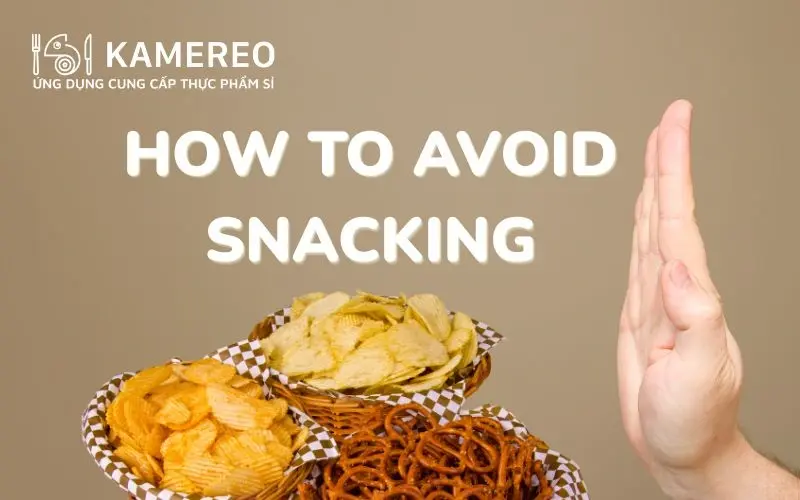Snacking incorrectly can lead to rapid weight gain, digestive problems, and an increased risk of diabetes and heart disease, while also causing nutritional imbalances. Consistently consuming foods high in sugar, salt, and unhealthy fats can also lead to fatigue, poor skin, and a constant craving for more food. If you’re looking for effective ways to stop snacking without extreme dieting, apply these 13 simple but highly practical tips!
Have a Balanced Breakfast with Protein
Protein is an essential nutrient that helps you feel full for longer, maintain stable energy levels, and curb unnecessary hunger pangs. A protein-rich breakfast helps you start the day effectively and reduces the craving for snacks. When choosing your breakfast, prioritize foods like eggs, oatmeal, Greek yogurt, or chicken breast to build a strong nutritional foundation for your body in the morning.
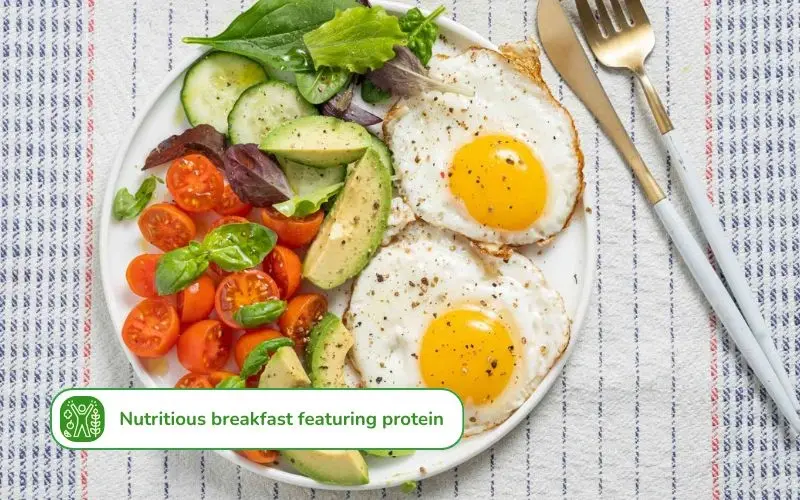
Eat at Regular Times
Maintaining a regular eating schedule is key to stabilizing your energy and controlling hunger. When you eat at the same time each day, you develop a scientific eating habit and avoid cravings between meals. This minimizes unnecessary snacking and keeps your calorie intake at a reasonable level.
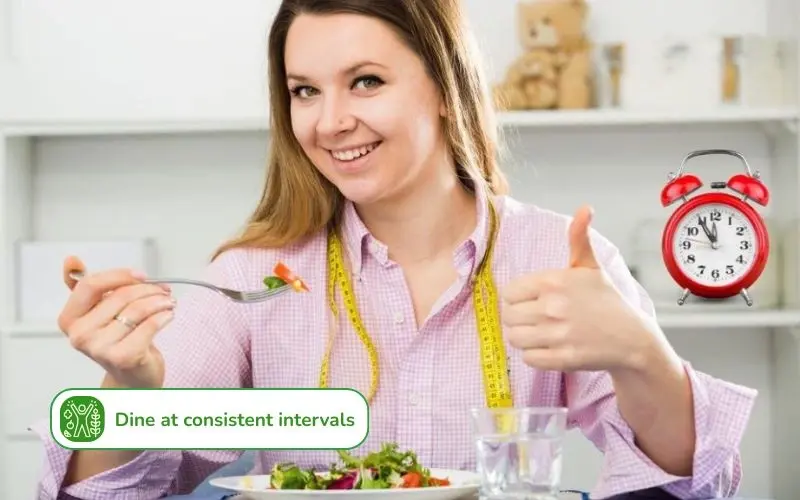
Balance Your Snacks
If you can’t completely eliminate snacks, learn to balance them. Instead of choosing foods high in sugar or unhealthy fats, replace them with healthy options like nuts, fresh fruit, or unsweetened yogurt. This approach satisfies your cravings without negatively impacting your weight or health.
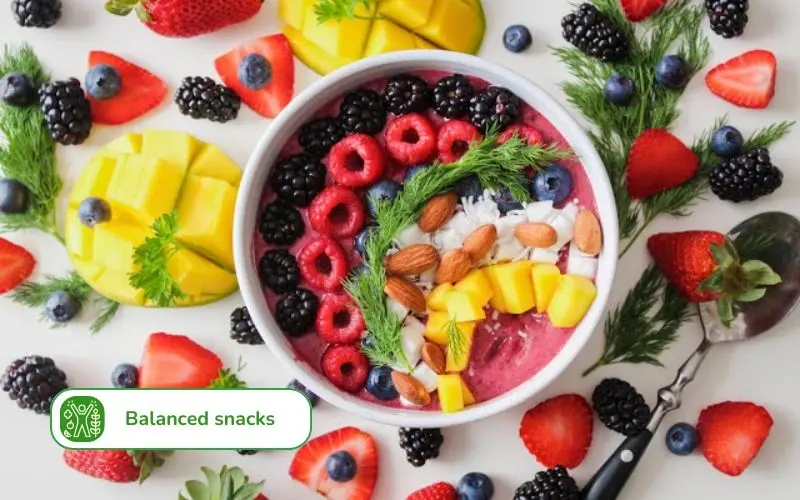
Plan Your Meals
Meal planning helps you avoid sudden hunger, which in turn reduces the need to snack. When you have a clear plan, you’ll be proactive about choosing healthy and nutrient-dense foods. Don’t forget to prepare healthy snacks like fruit or nuts to have a smart alternative ready when cravings strike.
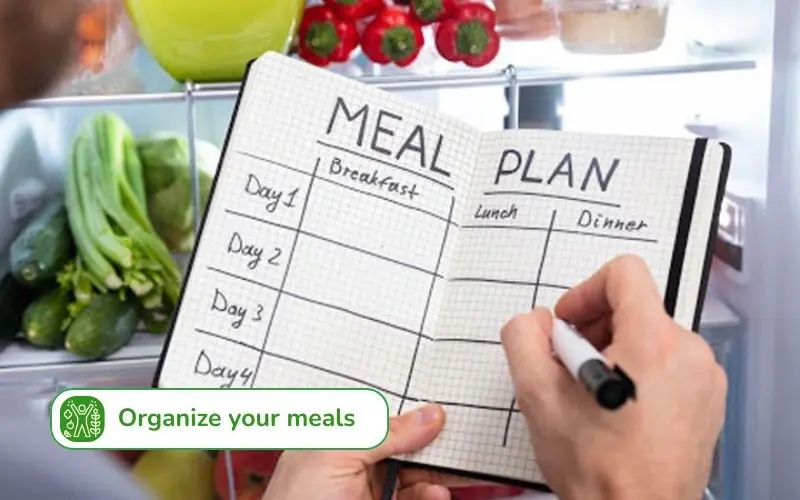
Drink Water
When you feel a sudden pang of hunger, try drinking a glass of plain water or a herbal tea like chamomile or peppermint. These drinks not only soothe your cravings but also cleanse your palate and sharpen your mind.
If you find plain water boring, try detox water with lemon, cucumber, and mint, or unsweetened iced tea with a fresh orange slice. Most importantly, drinking enough water throughout the day (about 2–2.5 liters) significantly reduces the need to snack, as you won’t mistake thirst for hunger.

Eat Several Small Meals Throughout the Day
Instead of eating three large meals and feeling hungry between them, you can split your food into 5-6 smaller meals a day. For example, after breakfast, have a portion of fresh fruit mixed with unsweetened yogurt, or a small container of mixed nuts (walnuts, almonds, and pumpkin seeds). For an afternoon snack, you could have a hard-boiled egg with a few slices of cucumber, or a slice of low-fat fresh cheese. Eating smaller, more frequent meals helps your body absorb nutrients better and maintains stable energy levels throughout the day.
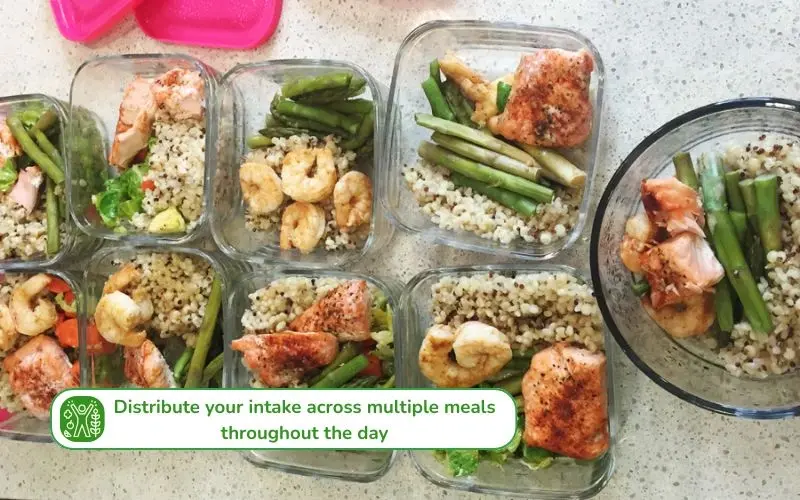
Avoid Getting Too Hungry
To avoid intense hunger that leads to mindless snacking, ensure your main meals are sufficient and on time. An ideal lunch might be brown rice with stir-fried beef and vegetables, seaweed soup, or brown rice noodles with shredded chicken and bean sprouts. After your main meal, listen to your body; if you’re still not full, you can add some steamed cauliflower with sesame sauce, or a sliced green apple.
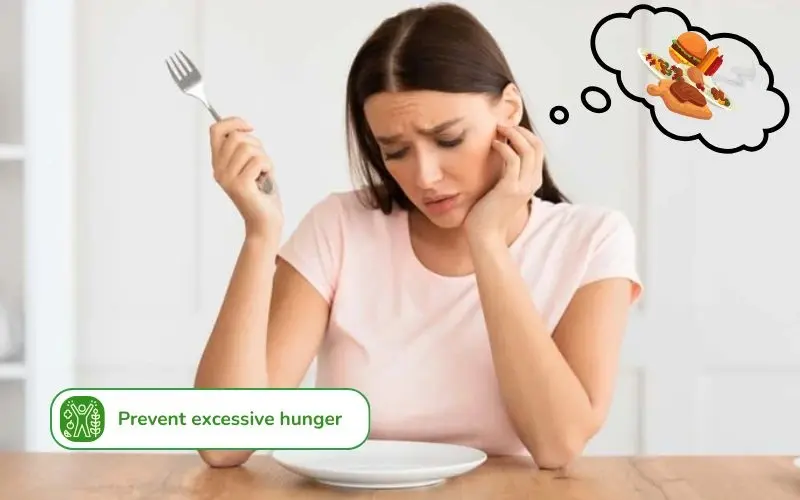
Eat Nutritious, Regular Meals
Your body needs a balanced amount of protein, carbohydrates, and healthy fats to function efficiently. Therefore, make sure each main meal includes all four food groups: protein (chicken, fish, eggs), good carbs (sweet potatoes, oats, brown rice), healthy fats (avocado, olive oil, nuts), and fiber (vegetables, fruits). For example, a reasonable dinner could be steamed sweet potatoes with grilled salmon and a sprout salad—simple but rich in energy and effective at reducing nighttime hunger.
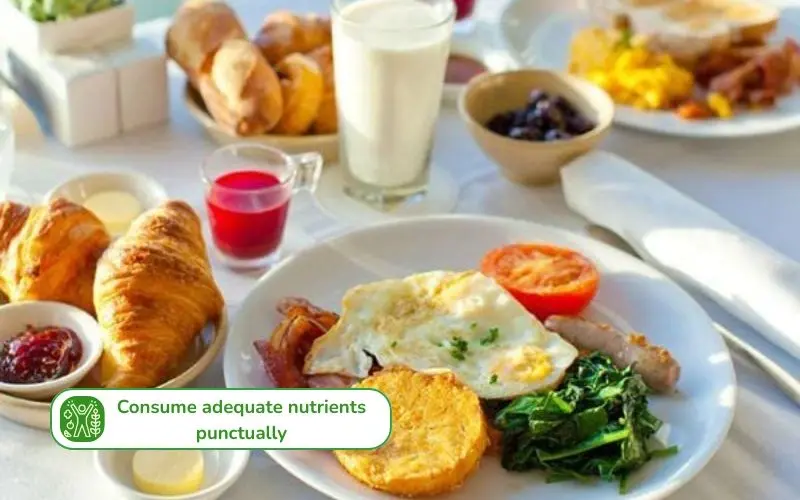
Balance Your Blood Sugar
To maintain stable blood sugar, choose snacks with a low GI (Glycemic Index). Low-GI foods are those that contain carbohydrates but cause a slow, steady increase in blood sugar, such as oats, legumes, green vegetables, sweet potatoes, fresh fruits (apples, pears, grapefruit), and whole grains.
A simple suggestion is peanut butter spread on whole-grain crackers, apple slices with low-fat cheese, or a hard-boiled egg with cucumber. These foods slow the absorption of sugar into the bloodstream, preventing sudden sugar cravings and maintaining stable energy levels throughout the day.
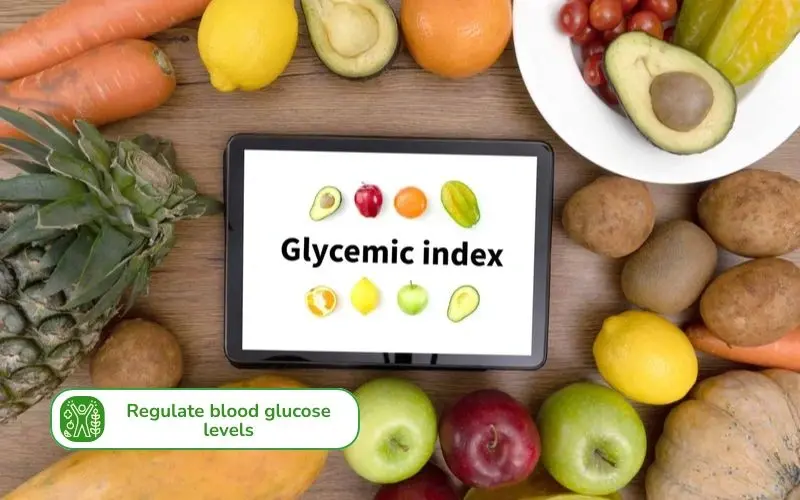
Increase Your Protein Intake
Increasing protein in your diet is a smart strategy to control hunger and reduce snacking. Try replacing snacks with torn boiled chicken breast mixed with salad, or a container of roasted chickpeas—both are convenient and easy to store. Additionally, hard-boiled eggs, unsweetened soy milk, and canned tuna are quality protein sources that are great for midday or post-workout snacks.
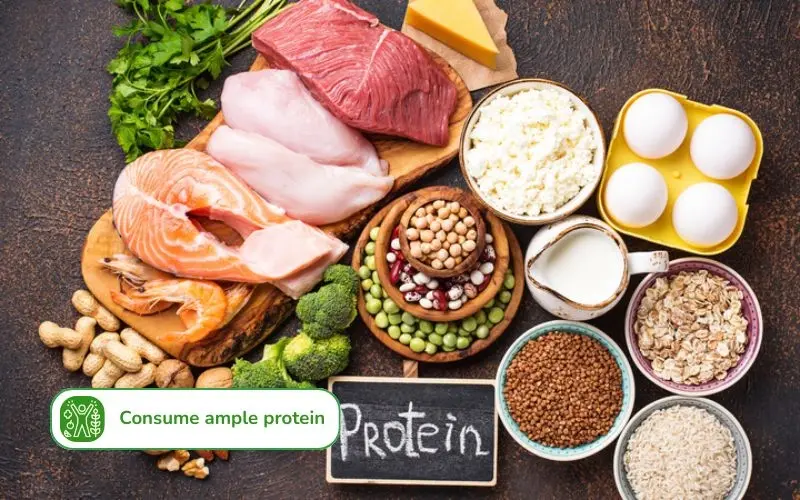
Eat More Fiber
Fiber slows down the digestive process, which helps you feel full for longer and reduces hunger pangs. A smoothie made with avocado and unsweetened nut milk, or strawberries with chia seeds, would be an excellent choice. You could also try steamed vegetables like pumpkin, cauliflower, and carrots, served with hummus or a sesame dressing to boost flavor while retaining nutrients. Adding fiber to each meal is a small step that can significantly reduce your need for snacks throughout the day.
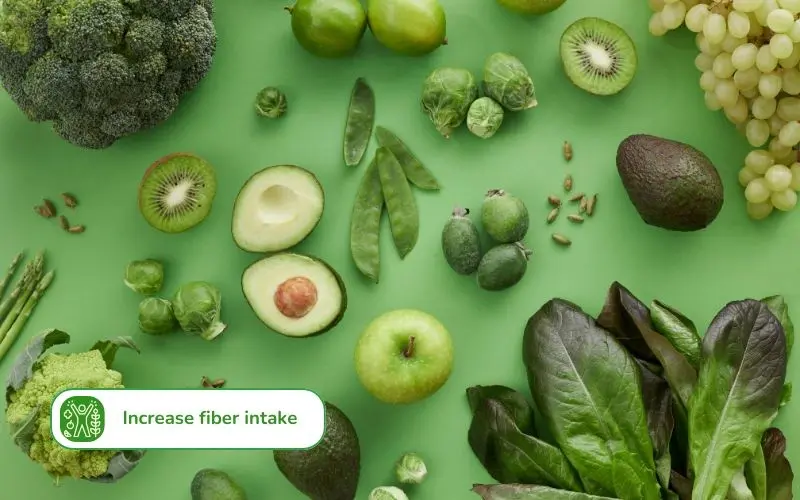
Chew Sugar-Free Gum and Brush Your Teeth
A small but effective trick to reduce cravings is to chew sugar-free gum or brush your teeth after eating. The minty flavor tricks your brain into thinking you’re no longer hungry and helps your mouth feel clean. When there’s no lingering food taste in your mouth, you’re less likely to reach for more snacks after a main meal.
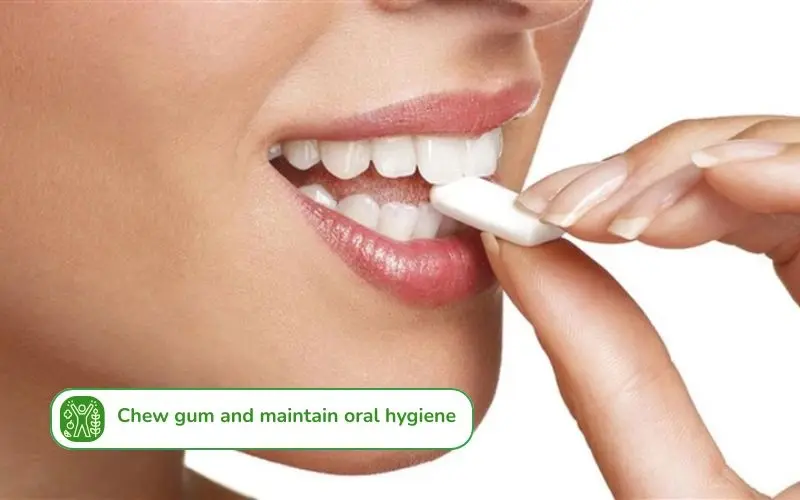
Reasons for Constant Snacking
The habit of snacking isn’t just about being “greedy” as many people assume; it often stems from dietary and emotional mistakes:
Skipping Breakfast
Skipping breakfast leaves your body with an energy deficit right from the start of the day. This leads to increased hunger in the mid-morning or early afternoon, making you more susceptible to high-sugar and high-carb snacks. Therefore, a nutritious breakfast helps balance blood sugar and maintain stable energy throughout the morning.
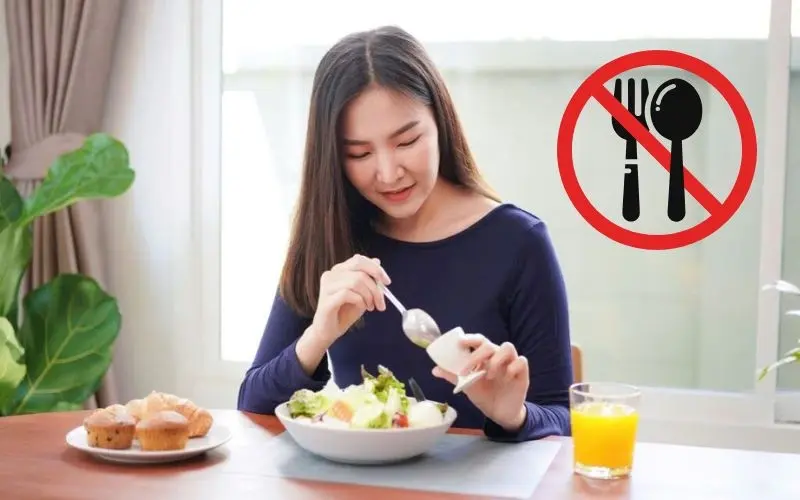
Not Eating Enough at Main Meals
When your main meals don’t provide enough energy and nutrients, your body quickly signals hunger to compensate, leading to continuous snacking to fill the energy gap. The consequence is a loss of control over portion sizes and the consumption of many empty calories. This is a primary cause of rapid weight gain and declining health.
Using Snacks to Cope with Emotions
Dealing with feelings of loneliness, stress, or boredom can cause many people to turn to food as a way to cope. Sweet and fatty foods often provide temporary comfort but, in the long run, can lead to emotional dependence on food. This is a common reason for snacking even when you aren’t truly hungry.
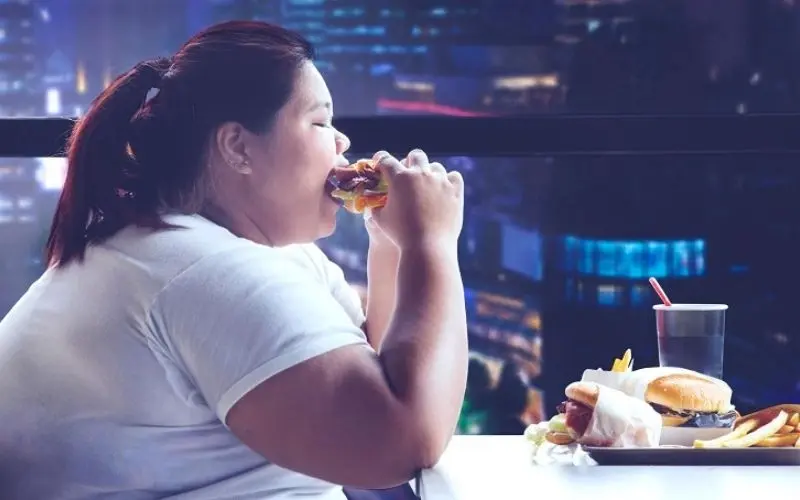
Unbalanced Snacks
Processed snacks like chips, cookies, candies, and sodas are often low in fiber, protein, and other essential nutrients. They cause a quick spike in blood sugar but also make you hungry again within 30-60 minutes. If you don’t choose the right foods, you’ll get caught in a cycle of eating, getting hungry, and eating again, making it difficult to control your daily calorie intake.
Benefits of Healthy Snacking
Healthy snacking offers many health benefits when chosen and consumed wisely. Foods like nuts, fruits, yogurt, or low-sugar, high-fiber options not only help balance blood sugar but also curb hunger between main meals. Smart snacking helps with weight management, boosts metabolism, and provides a steady supply of energy throughout the day, especially for people who are physically active.
In addition to physical benefits, healthy snacks also have a positive impact on your mental and emotional well-being. Nutritious light meals help improve your mood, increase focus, and keep you alert. Instead of eating sugary foods that can cause irritability and fatigue, choose foods rich in protein or good carbohydrates to stay full and emotionally stable. This habit also helps prevent post-meal sleepiness and energy crashes.
See more: A Compilation of Healthy Snacking Tips
If you’re looking for a quick yet nutritious meal, Kamereo’s instant chicken breast is the ideal companion for your healthy diet. No cooking is needed—just open and enjoy! It’s a perfect choice for office workers, gym-goers, or anyone who needs a high-quality snack.

Kamereo x CP Instant Chicken Breast Classic Flavor 87g
26,460đ/PACK
32,500đ/PACK

Kamereo x CP Instant Chicken Breast Smoked Flavor 87g
26,460đ/PACK
30,000đ/PACK

Kamereo x CP Instant Chicken Breast Herb-Infused Flavor 87g
26,460đ/PACK
31,000đ/PACK
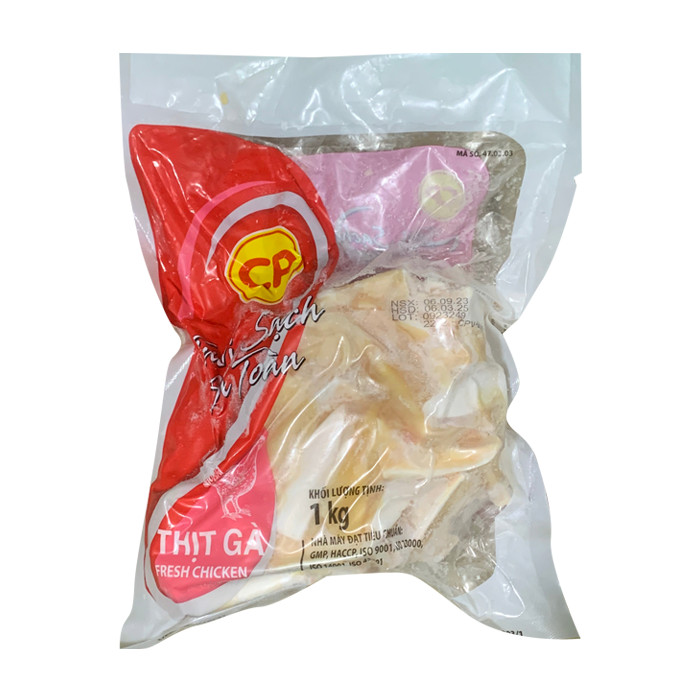
CP Frozen Chicken Breast Cartilage 1kg
111,300đ/PACK
134,500đ/PACK
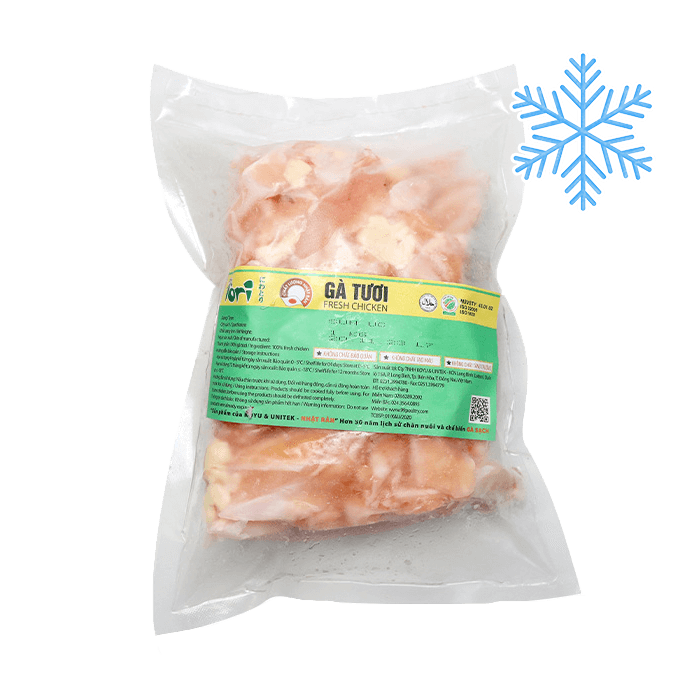
Koyu Frozen Chicken Breast Cartilage 1kg
108,150đ/PACK

CP Frozen Chicken Breast Without Skin 1kg
91,350đ/PACK
101,500đ/PACK

Koyu Frozen Chicken Breast Without Skin 1kg
90,300đ/PACK

CP Fresh Chicken Breast Without Skin 1kg
91,350đ/PACK
105,500đ/PACK
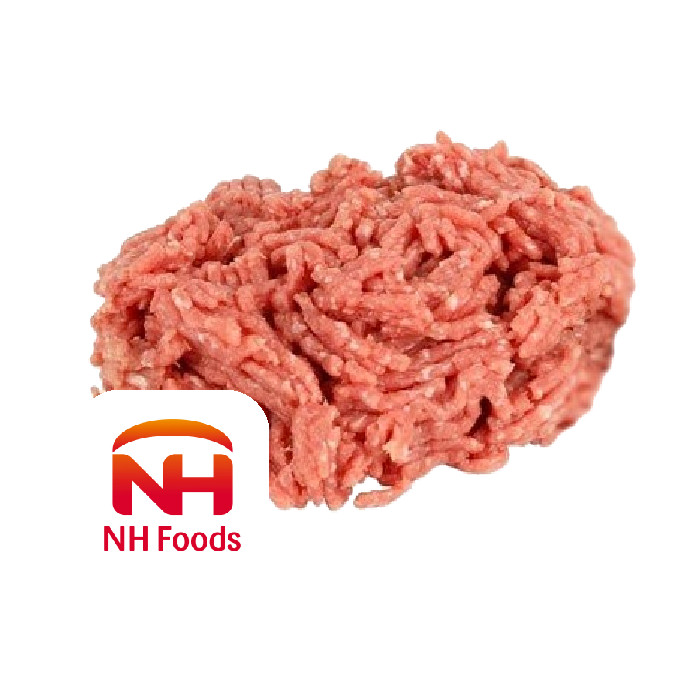
NH Foods Frozen Minced Chicken Breast 1kg
114,450đ/PACK
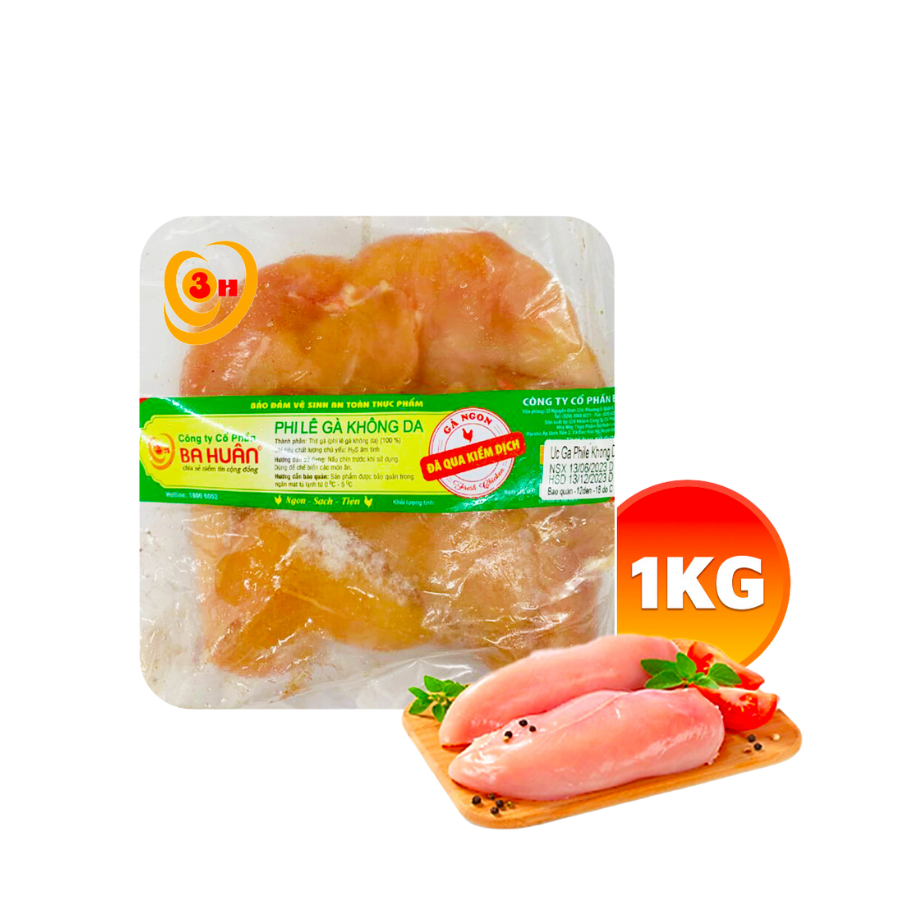
Ba Huan Frozen Chicken Breast Without Skin 1kg
79,800đ/PACK
101,500đ/PACK
Buy it now at Kamereo’s official distribution system to experience convenience in every bite!
Convenient instant chicken breast is a healthy snack option for busy people
Conclusion
Applying the right ways to stop snacking is the first step to controlling your weight, improving your health, and building a more scientific lifestyle. Instead of cutting out snacks completely, learn how to choose the right foods and eat them at the right time. Don’t forget to explore more wellness tips in Kamereo’s Healthy and Beautiful section to accompany you on your daily self-care journey!
See more:



